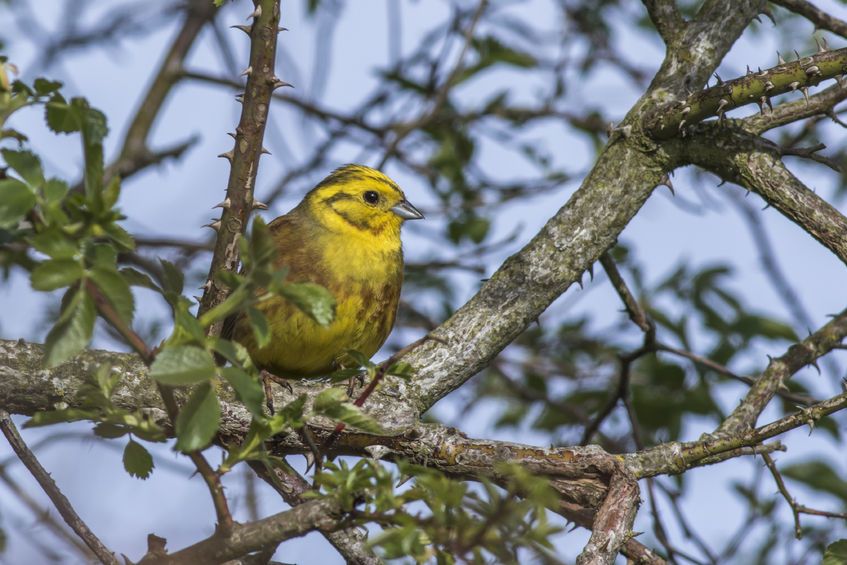
Three key farmland bird species increased in number over a five-year period in response to an agri-environment scheme, according to a new study.
Yellowhammers, house sparrows and tree sparrows rose in abundance in farms taking part in the project across Northern Ireland.
Yellowhammers – a red-listed species which had been in sharp decline – were up by 78% between 2006 and 2011.
But according to the RSPB study, yellowhammer numbers continue to decline in the wider countryside where measures are not in place.
The farmland bird study, the first of its kind to be carried out on the island of Ireland, showed that agri-environment schemes can improve the population status of farmland bird species.
As well as the surge in yellowhammer numbers on farms taking part in the agri-environment scheme, house sparrows were up 46% and tree sparrows up 207% in the five-year period.
The study assessed whether changes in the abundance of priority farmland bird species differed over a five-year period between farms under agri-environment scheme management and a similar sample of farms not subject to the management.
It was conducted in County Down, one of the last remaining areas of lowland mixed arable farmland in Northern Ireland.
Three target species (house sparrows, tree sparrows and yellowhammers) showed more positive increases in abundance on the agri-environment scheme farms.
'Environmental Farming Scheme'
With the opening this week of the Environmental Farming Scheme (EFS), RSPB NI is encouraging farmers to sign up for this scheme that compensates for work to enhance biodiversity and water quality.
EFS, administered by the Department of Agriculture, the Environment and Rural Affairs (DAERA), is open to all active farmers who have management control of at least three hectares of eligible farmland.
Key options in EFS highlighted by RSPB NI are provision of winter feed crop for wild birds, retention of winter stubble, creation of arable margins and creation of pollinator margins.
Kendrew Colhoun, RSPB Senior Conservation Scientist said the study was designed to evaluate whether agri-environment schemes led to increases in the priority species the options were targeted at. He said the conclusion was a "resounding yes".
“We see the EFS as a critical component as part of our work to maintain biodiversity across the countryside in Northern Ireland," Mr Colhoun said.
"Our study provides unequivocal evidence that agri-environment schemes can deliver for key species if the correct mix of EFS options (such as ones to provide summer and winter food and nesting habitat) are targeted to the right places and coupled with advice.”
Prior to the current EFS being made available last year, there had been a couple of years without an available agri-environment scheme.
According to the RSPB, this will have had a negative impact on species, including the yellowhammer.
